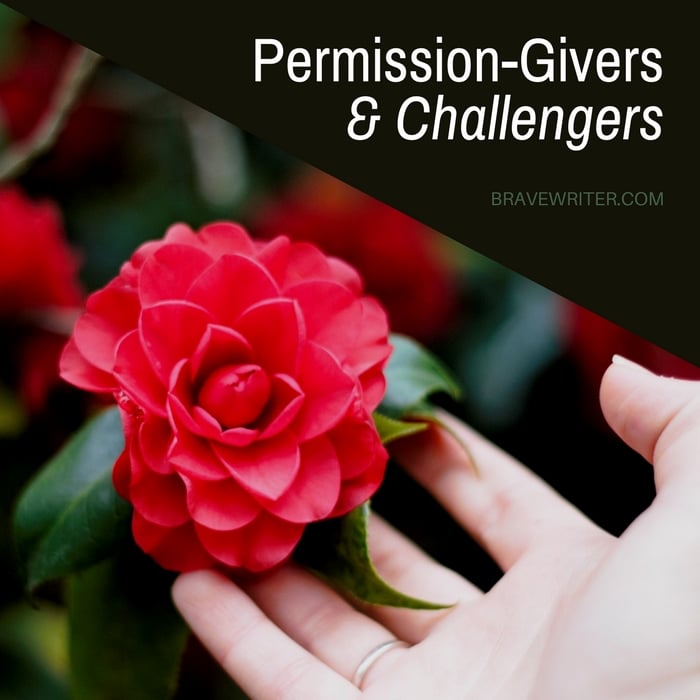Permission-Givers and Challengers

There seem to be two ways to be in the world that inspire others: to be a permission-giver and to be a challenger.
Permission-givers help people know that where they find themselves right now is okay: that their intuition, their needs, their return to self (awareness, care, regard), their pain—all of these are valid and valuable.
Permission-givers offer rest from striving.
Challengers call people out of habit and complacency into a new sense of self. Challengers inspire people to aspire to goals that previously seemed impossible or too big.
Challengers offer energy for striving.
The best companions on life’s journey offer both. They know that sometimes it is better to wait and give comfort than to challenge, and other times it is better to support the despair and doubt while sticking with a practice or a change or an effort to make it to the end goal.
The biggest experiences in life benefit from permission and challenge, balanced back and forth.
The danger is to assume that when pain is present, there is only one way to address it. The trick is knowing when to give permission, and when to offer support to meet a challenge.
I’ve found that sometimes the only way to know which to offer is to test one or the other and see what happens.
Challenge can be greeted by complaint—that doesn’t mean it’s the wrong choice.
Permission can be greeted by relief—that doesn’t mean it’s the right choice.

I like to take a bird’s eye view of the situation and consider a bigger picture. Some of the aspects of that picture might be:
- Rest and nutrition
- The size of the goal
- The pace of getting to the goal
- Space for recovery and pleasure
- The number of goals
- Whose goal is it?
- Changing the circumstances/environment
For instance, if you have a child who is struggling to read, a permission-giver may say,
“It will come in time. We’ll revisit this again in 6 months. Let’s listen to audio books.”
That may be perfect for your 6, 7 year old.
For your 8, 9 year old, the goal to read has become more important. The longer the child goes without reading, the more chances there are that the child feels like she’s failing or missing out on a universal experience.
A challenger might say,
“I see your struggle. I’m here to support you each day as we break this task into manageable increments. Let’s only work on reading after you’ve had a good breakfast, alone with me, for ten minutes per day. We’ll check it off on the calendar. We’ll get more help if we need it.”
The goal (reading) matters, and should not be abandoned. Permission to recover, to take time off, to feel frustrated—super important. Challenge to keep going, to have a companion on the journey, to adopt a practical strategy: also super important.
We want to toggle between these in home education and listen to our kids’ feedback, and always take it seriously.
















